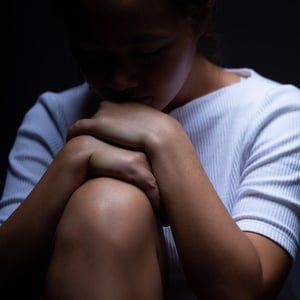
The festive season is portrayed as a time for fun and family, gifts and celebration, indulgence and “treat yourself”. Merry jingles play in every aisle, all the ads are selling ‘happy holidays’ and social media is flooded with #sundowners with #friends.
Unfortunately, it’s not all that merry for everyone.
Why so gloomy?
The festive season can be a very difficult time for the recently bereaved, people with fractious family relationships, those who are under financial strain, people feeling burnt out, suffering from depression, or who feel disconnected from the world.
The stark contrast between their feelings and society’s projections of what December should be like often leads people to feel very isolated, because reality is so different from the world around them. It’s as if the images which flood our screens and malls are salt in the wound and a constant reminder of how they are lacking.
And then there's summer
South African summertime is, for many people, associated with the dreaded notion that only certain body-types are acceptable “beach bodies”, leading to the vast majority feeling inadequate. The social-media pressure of perfection can prohibit people from fully enjoying experiences and damage their sense of self-worth.
A play that gets it
In 1985, British playwright Steven Berkoff wrote a one-man show, “Harry’s Christmas” about a man and his desperately alone week before Christmas. It opens with Harry counting the Christmas cards he’d received. He observes that the (small) number of cards depicts his worth in the world.
More than three decades after the inception of the original play, I will be performing a one-woman Afrikaans adaptation of the piece at the Woordfees festival in Stellenbosch in March. The play is still frighteningly relevant. These days we just measure our worth in the amount of ‘likes’ or ‘follows’ we get on social media, rather than Christmas cards.
The arts occupy a unique position to generate awareness and cultivate empathy. When people watch a play with a particular character to whom they can relate, they feel less alone because the play validates their feelings and experiences.
Have empathy
If you see someone suffering on stage and recognise yourself in that person, it is both reassuring and, hopefully, encourages you to seek help. Alternatively, you may recognise an acquaintance or friend in the stories and reach out to them. Either way, art moves people to empathy and empathy helps us understand.
In the light of all the excitement surrounding the holidays, little attention is paid to those on the fringes. Offices close and the majority of people depart on leave to spend time with loved ones. For those who can’t do the same, their daily routine grinds to a halt, leaving them to face their loneliness. There is a line in the play that says “Christmas is like an avalanche coming… you want to run away, but you’ve nowhere to hide".
Feelings of loneliness and unworthiness are often compounded and can lead to depression or anxiety. There is a lot of shame attached to loneliness and people like Harry think “loneliness is like a disease or smell... when you give off a whiff it puts people off”. Opening the discussion about people’s varying realities of the not-so festive season mitigates feelings of shame by helping people realise they are not alone and by broadening the perceptions of outsiders.
Why we are still so unaware of mental health
Because of the stigma attached, mental health issues are not spoken about as openly as physical health issues, which results in ignorance. Shame and fear prevent people from seeking proper help or support - either professionally or by leaning on a personal support system.
Then there is the further issue of the lack of accessibility to professional help. There are only 2.75 clinical psychologists per 100,000 people in South Africa. Therapy is expensive and regarded as a luxury for a privileged few.
The South African Depression and Anxiety Group (SADAG) does a lot in terms of creating awareness, education, support groups, hotlines and making available counsellors through their website. One of their projects is a suicide and depression hotline, which typically records a spike in calls during December.
Know the signs
If you are worried about someone’s mental wellbeing, signs to look for are when people withdraw from social activities or show feelings of frustration, hopelessness or worthlessness. People may experience changes in the amount of sleep they get or their eating habits. It may be difficult for people to reach out, so try mentioning that you’ve noticed changes and are there to support them.
I hope to raise awareness of how important mental health is, especially at times when the levels of self-criticism, rejection and isolation are dangerously high. Being aware that it’s not “the most wonderful time of the year” for everyone is a step in the right direction.
Important resources
SADAG: http://www.sadag.org
SADAG Mental Health Line
011 234 4837
Other contact information:
Suicide Crisis Line
0800 567 567
Cipla 24hr Mental Health Helpline
0800 456 789
Pharmadynamics Police &Trauma Line
0800 20 50 26
Adcock Ingram Depression and Anxiety Helpline
0800 70 80 90
Department of Social Development Substance Abuse Line 24hr helpline
0800 12 13 14
SMS 32312
Akeso Psychiatric Response Unit 24 Hour
0861 435 787




 Publications
Publications
 Partners
Partners















